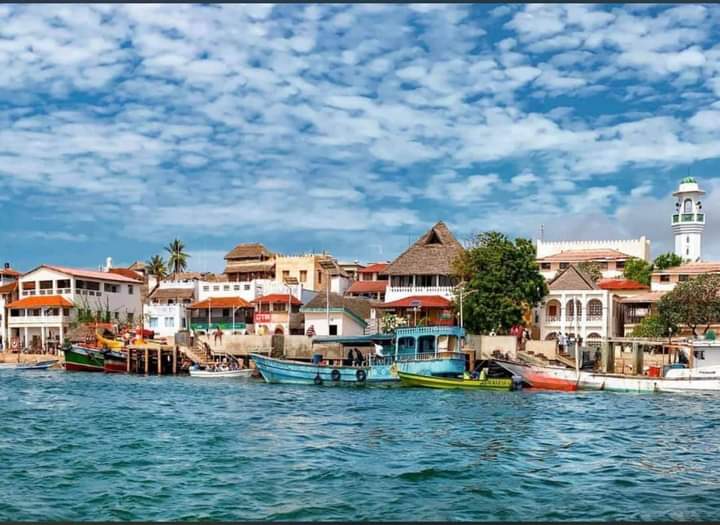
Lamu Cultural Festival: A Living Celebration of History and Heritage in Kenya
Experience the Lamu Cultural Festival, where tradition meets vibrant celebration on Kenya's historic Lamu Island. This multi-day event offers a practical immersion into Swahili heritage through dhow races, music, crafts, and food, ideal for culture enthusiasts and adventurers alike.
Secure Accommodation Early
Lamu fills up quickly during the festival, so book your lodging well in advance to avoid last-minute price hikes or lack of availability.
Stay Hydrated and Use Sun Protection
November's sun is strong and humidity high; carry water and apply reef-safe sunscreen regularly during outdoor activities.
Wear Comfortable, Sturdy Footwear
Navigating Lamu’s narrow cobblestone streets requires shoes with good grip and support for uneven surfaces.
Respect Local Customs and Traditions
The festival is rooted in deep cultural values; dress modestly and ask permission before photographing local people or events.
Lamu Cultural Festival: A Living Celebration of History and Heritage in Kenya
The Lamu Cultural Festival unfolds each November on the serene island of Lamu, Kenya—an event that goes beyond a typical festivity and provides a full-bodied experience of Swahili coastal culture. Here, the island’s stone streets and dhow-lined shoreline come alive with vibrant dances, a bustling dhow race, and traditional crafts showcasing centuries-old ties to Arab, African, and Persian cultures. The festival stretches across several days, giving visitors ample opportunity to engage practically with the elements that define the region’s heritage.
Lamu Island, framed by the Indian Ocean’s persistent tide, offers more than a visual spectacle. Walking through the narrow alleys of Lamu Town, a UNESCO World Heritage site, the air carries the scent of frankincense and spices—nature’s own way of narrating history. The sounds of taarab music snake through the air as artisans hammer wood and string beads, their crafts detailed and finely honed over generations.
The festival’s dhow races form the adventurous heart of the experience. You’ll witness boats daring the ocean’s pulse, their sailors negotiating with currents that hold their own fierce logic. It’s a display of skill and endurance as competitors push forward, caught in the rhythm between ocean and wind. Joining in or watching requires mindful preparation; the sun bears down steadily and humidity lingers, demanding hydration and light, breathable clothing.
Cultural performances, traditional Swahili cuisine, and open-air markets add to the dynamic pace and sensory layers of the festival. Interactions with locals reveal stories that enhance the experience—tales of ancestors who carved the island’s identity and how modernity dances with tradition here, making Lamu as much a living culture as a site for tourism.
For practical planning, the festival timing in November aligns with the short dry season, making walking and exploring comfortable. Accommodation fills early, so booking in advance is advisable. Prepare for uneven cobbled streets with sturdy, comfortable footwear that will hold up against both foot and occasional ocean breeze salt spray.
In essence, Lamu Cultural Festival offers not only a glimpse into a culture fiercely its own but also a chance to engage in an adventure where history and community pulse vividly in the present. It’s an accessible yet deeply engaging event, suitable for travelers who appreciate cultural depth alongside the ease of fluid exploration.
Nearby Trips
All Adventures
Boat Charters
Water Activities
Adventures near Lamu, Kenya
Discover the unique and memorable adventures that make Lamu, Kenya special.
Frequently Asked Questions
What is the main highlight of the Lamu Cultural Festival?
The dhow races are the festival’s signature event. These traditional sailing boats challenge the Indian Ocean’s currents, displaying centuries-old maritime skills unique to the Swahili coast.
How accessible is the festival for first-time visitors?
Very accessible. Lamu Town’s compact layout and the friendly local community make it easy to navigate. However, prior planning for accommodations and cultural etiquette is recommended.
Are there any environmental concerns related to the festival?
The rise in tourism during the festival increases waste and water usage on the island. Visitors are encouraged to minimize plastic use, respect protected areas, and support sustainable local vendors.
Can you participate in the dhow races or just watch them?
Participation is generally limited to experienced local sailors due to the skill needed to navigate the ocean currents. Visitors can enjoy premium vantage points for watching the races unfold.
What local wildlife might visitors see during the festival?
Keep an eye out for coastal birds like crab plovers and kingfishers. The reefs nearby are home to colorful marine life visible through snorkeling trips, often arranged during festival breaks.
What’s a lesser-known feature of the festival worth exploring?
The traditional Swahili cooking demonstrations and evening storytelling sessions provide rich insights into local culinary arts and oral history often overlooked by casual attendees.
Recommended Gear
Lightweight Walking Shoes
Protects feet from uneven cobblestone and sandy paths; keeps you comfortable while moving through town and event sites.
Reusable Water Bottle
Staying hydrated is critical under the warm sun and during extended outdoor festival activities.
Sunhat or Cap
Offers sun protection during daytime events, particularly when witnessing the dhow races and outdoor performances.
Modest Clothing
Respects cultural norms; lightweight long sleeves and loose pants or skirts strike a balance between comfort and local tradition.
Local Insights
Hidden Gems
- "Shela Beach—a quieter stretch of sand perfect for sunset walks away from the festival crowds."
- "Old Town Mosque—an often overlooked historical site revealing early Swahili Islamic architecture."
Wildlife
- "Mangrove crabs in coastal forests"
- "Colorful reef fish and occasional sea turtles near offshore coral beds"
History
"Lamu Island’s heritage is anchored in its role as a trade hub between East Africa, Arabia, and India dating back over 600 years, blending cultural influences visible today in its architecture and dialects."
